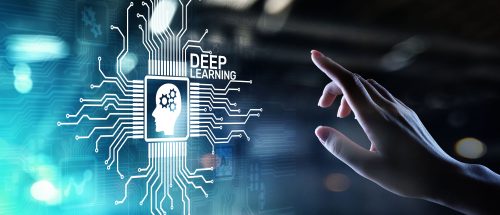There are many facets of technology improving the way industries move and operate today. One of these is deep learning. Deep learning is an aspect of machine learning falling under both the Internet of things (IoT) and artificial intelligence (AI).
Without the presence of deep learning in AI systems, these technological advancements can’t function as effectively as they do.

Deep Learning For Industries
Deep learning platforms aim to make various processes easier and more efficient. This also enables employees to specialize in the tasks they need to deliver. With this in mind, many industries are benefiting significantly from this innovation, including:
-
Transportation And Automotive
First on this list is the transportation and automotive industry. There are many ways deep learning can bring to this industry. Here are some examples:
- Cars are now equipped with the power to detect possible crossing pedestrians, especially when the weather condition is bad or visibility is poor. In effect, the likelihood of hitting someone is significantly lowered.
- Cars are also able to detect objects crucial to driving safely like traffic lights and stop signs.
-
Digital Assistants
The business industry also uses digital assistants to its advantage by optimizing various interactions and transactions. These can be as simple as instructions and operations on smartphones like Google, Siri, and Alexa.
In homes and offices, digital assistants can carry out instructions you command them to do. This makes for better efficiency as there are certain things you may no longer have to do by yourself.
The latest digital assistants have the following advantages to businesses:
- Manage transitions and transactions between live human customer service representatives, agents, and chatbots;
- Automate responses for information technology (IT) service desk questions;
- Answer complex questions;
- Set reminders for employees with tasks needed to be given priority.
-
Ceramics
Production of something as important and precise as ceramics is made more efficient with the use of deep learning and machine learning. This is particularly of the highest importance when the production line is already in the quality control phase.
With the algorithms set in deep learning, the following can be achieved:
- Show any defects and anomalies in tiles, so these can still be corrected, if possible;
- Predict the possible effects and behaviors of certain materials when exposed to extreme weather conditions;
- Provide template and pattern for future designs.
-
Aerospace And Defense
In aerospace, deep learning is needed to identify objects from satellites that are able to locate possible areas of interest. When it comes to defense, deep learning also helps those in the command center to locate safe and unsafe zone for the troops.
Here are other uses of deep learning when it comes to the aerospace and defense industries:
- Preventive maintenance, so any anomalies and defects are detected early on before these result in big accidents that would’ve otherwise been prevented;
- Intelligence and surveillance, so any suspicious activity in fields or plants and the military zones are immediately detected;
- Cybersecurity, so any confidential information won’t get leaked out of the systems of these important industries.
-
Energy
As the population continues to grow, so also does the demand for more energy use. The energy industry is scrambling to find the best ways to be as efficient as possible in its operations. This is to provide better and more renewable options to individuals in the local area they serve.
Through utilizing deep learning and other technological advancements, this can be done by energy companies. For instance, there are deep learning applications applying infrared technology and maintenance for better service to subscribers.
-
Food
Last on this list is the food sector. It’s also one that’s benefited greatly from the positive effects brought on by deep learning. Typically, these can be divided into two: improvement in quality and reduction in costs.
For instance, companies working in the food and service industries can use deep learning to analyze the food market. This makes them more adept at understanding consumer trends and at adapting to what the consumer wants. Also, the innovation can help them in coming up with ideas to try for further lead generation.
Conclusion
So many industries are greatly enjoying the benefits brought about by technological advancements. If you belong to any of the industries above, perhaps you’d like to find ways on how you can incorporate deep learning in your operations.
With its popularity now, deep learning is seated to become even more in-demand in the coming years. It’s up to you to improve the way your business operates by using deep learning to your advantage.
Interesting Related Article: “Deep learning applied to genome identifies unknown human ancestor“

